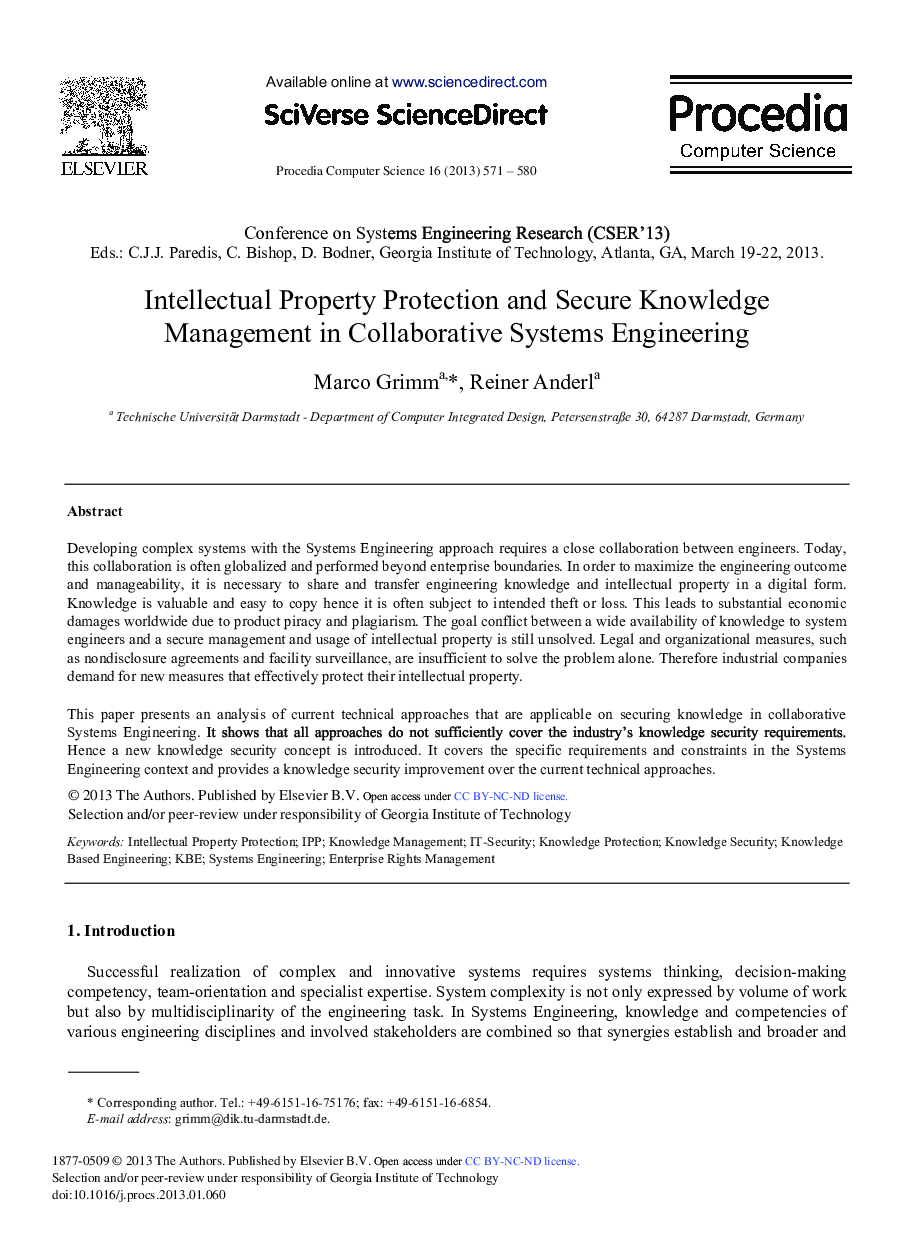| Article ID | Journal | Published Year | Pages | File Type |
|---|---|---|---|---|
| 486606 | Procedia Computer Science | 2013 | 10 Pages |
Developing complex systems with the Systems Engineering approach requires a close collaboration between engineers. Today, this collaboration is often globalized and performed beyond enterprise boundaries. In order to maximize the engineering outcome and manageability, it is necessary to share and transfer engineering knowledge and intellectual property in a digital form. Knowledge is valuable and easy to copy hence it is often subject to intended theft or loss. This leads to substantial economic damages worldwide due to product piracy and plagiarism. The goal conflict between a wide availability of knowledge to system engineers and a secure management and usage of intellectual property is still unsolved. Legal and organizational measures, such as nondisclosure agreements and facility surveillance, are insufficient to solve the problem alone. Therefore industrial companies demand for new measures that effectively protect their intellectual property.This paper presents an analysis of current technical approaches that are applicable on securing knowledge in collaborative Systems Engineering. It shows that all approaches do not sufficiently cover the industry's knowledge security requirements. Hence a new knowledge security concept is introduced. It covers the specific requirements and constraints in the Systems Engineering context and provides a knowledge security improvement over the current technical approaches.
